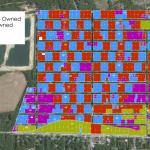GALLOWAY – Tuition and fees at Stockton University will increase 2.25% for the 2019-20 academic year and the summer 2020 session.
According to a release, in-state full-time undergraduate students will pay $14,047 per year, a $309 increase from 2018-19.
Full-time out-of-state undergraduate students will pay $21,335, a $469 increase. In-state part-time students will pay $540.28 per credit.
The trustees separately approved an increase in the transportation and safety fee from $120 to $135 per semester. All other fees remained the same.
“Stockton remains committed to providing students with access and excellence at an affordable price,” Stockton President Harvey Kesselman stated. “Our U.S. News and World Report ranking as a top 10 public college in the Northeast and our inclusion in the Forbes listing of Best Value Colleges in the United States show we are succeeding.”
Kesselman said Gov. Phil Murphy’s decision to freeze $4.6 million of new funding for Stockton was not a factor in setting tuition and fees this year, but makes it difficult to plan for the future expansion in Atlantic City.
“I know the governor appreciates our efforts to remain affordable and recognizes the beneficial impact the extra funds will have on Stockton and its students,” Kesselman stated.
Stockton offers several initiatives to help students complete their degrees in a timely and cost-effective manner.
The university’s flat-rate tuition plan allows full-time students to take up to 20 credits per semester at no additional cost, potentially saving thousands of dollars.
A 12-month housing option makes it affordable for students to live at Stockton’s new Atlantic City Residential Complex year-round while also working, doing internships and taking classes over the summer.
More than 170 students have registered for 12-month housing for 2019-20.
The university will also discount summer tuition again in 2020 to provide additional flexibility for students in managing their class schedules.
As a new initiative, Stockton revised its tuition and fee allocation process for 2019-20, shifting more of the total cost of attendance to tuition, and less to fees.
“The total cost remains the same,” stated Vice President for Administration and Finance Michael Angulo. “But the new initiative allocates more of the cost to tuition, which will benefit students who are eligible for tuition reimbursements from their employers.”
The Board of Trustees previously approved 2019-20 housing and meal plan rates. Annual meal plans will increase an average 2% and range from $2,000 to $4,000.
Commuter meal plans range from $100 to $455. Housing rent costs range from about $3,100 per semester to $5,800 per semester depending on the housing type and location.
Cape May Beach – So Democrat governors and mayors think their authority is greater than federal authority? That’s hilarious! I see some of them say you’re not coming for my people meaning people here illegally while…







